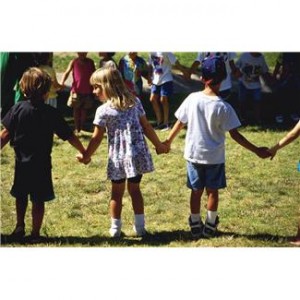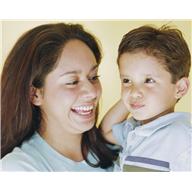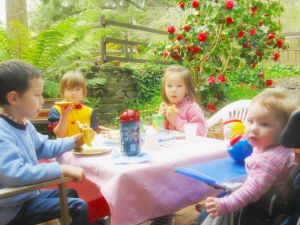This month is Autism Awareness Month. Autism is not something we can see from the outside looking in and currently, there are far more questions than answers. The brain and how it works is mysterious and amazing. That raises another question: What are some ways to encourage brain development in all children? Here are some encore posts on young children, kindergarten readiness, and multiple intelligence.
People-Smart:

People-smart skills are obviously important for kindergarten readiness (as well as being one of the 8 multiple intelligences). Being in a group with lots of young kids and not very many adults is not easy for little ones. It’s a big learning step. Were you ever called a social-butterfly? Or a loner? Social butterflies are likely those with strong people-smart intelligence while loners are those with people-smart challenges. Very young children can have these same strengths and challenges. Some of these skills seem to already be part of a child’s personality and we can encourage kids to develop others and help them cope in groups.
- Find an unbreakable m
 irror or one safely attached to the wall and take turns making faces with your child. What does a sad face look like? How about a very mad one? A happy face would look like so happy that other people might smile. This helps your child learn to read facial expressions and understand how others feel.
irror or one safely attached to the wall and take turns making faces with your child. What does a sad face look like? How about a very mad one? A happy face would look like so happy that other people might smile. This helps your child learn to read facial expressions and understand how others feel. - If possible, participate in groups such as story-time at the library or other community programs. Not all kids feel comfortable in large groups of people and need practice.
- As you read books and share stories, ask your child what the characters in the story might be feeling? You may need to supply most of the words, for example, do you think that Piglet is feeling sad or is Eeyore kind of sad? The Berenstain Bears often explore problems and solutions but there are lots of other kids’ books, stories and videos about different ways of getting along with others.
 As with self-smart/me-smart “I” messages need to be practiced over and over. “I” messages are ways to say “I don’t like…” instead of “You make me…” For example, “I don’t like when you won’t share,” is more effective than “You are mean.”
As with self-smart/me-smart “I” messages need to be practiced over and over. “I” messages are ways to say “I don’t like…” instead of “You make me…” For example, “I don’t like when you won’t share,” is more effective than “You are mean.”
Play-dates let kids explore playing with others and learn to share and take turns.
Sharing meals and sharing jobs around the house is another way that kids can participate with others.
These are a few suggestions for encouraging children learn to be people-smart. What activities are appropriate to help your child develop interpersonal intelligence and kindergarten readiness so as to become people-smarter?
